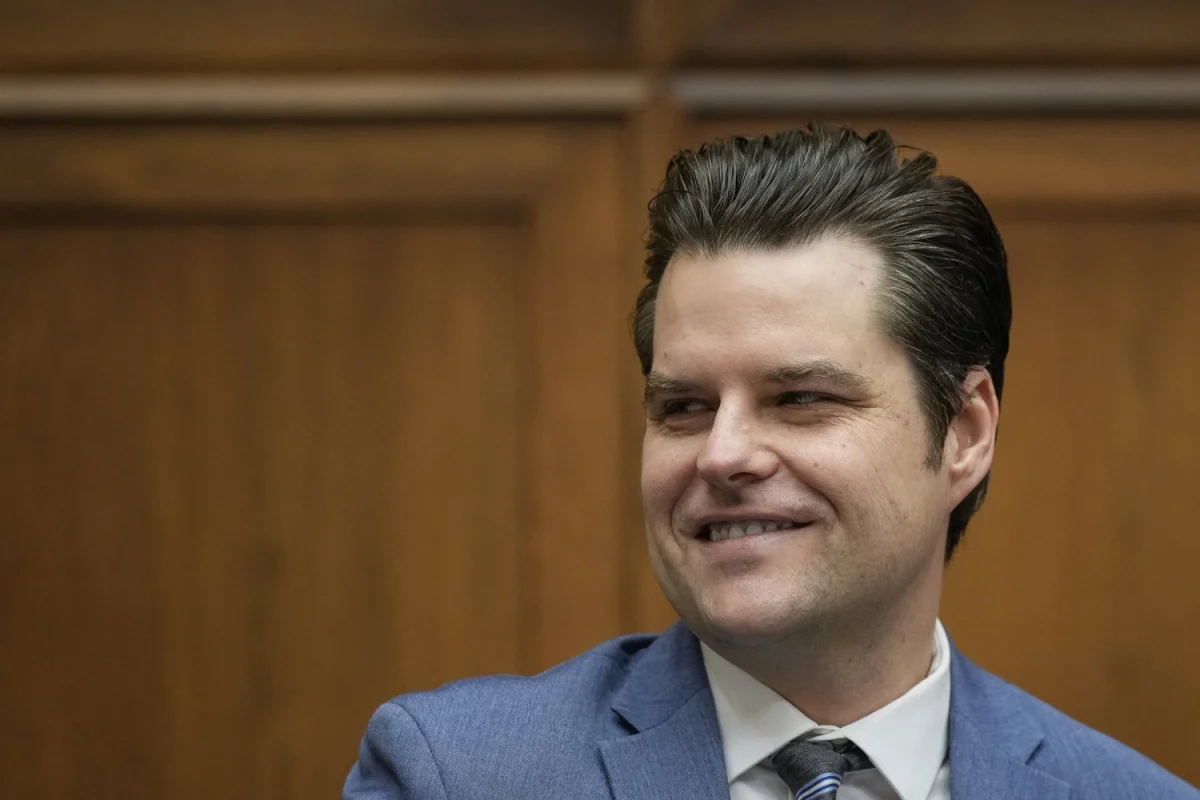On Dec. 23, the House of Representatives, with a majority vote, released the long-awaited ethics report on Matt Gaetz. Gaetz’s resignation after the now rescinded appointment to Attorney General assumed that the report would remain confidential in the House Ethics Committee. This release has followed years of investigations on allegations against Gaetz. This is the first released report against a former member since 2006.
When you open the official report, it’s 42 pages long and pretty daunting to read. Here is a concise breakdown of the report’s most crucial parts.
What are the allegations the Committee was investigating?
The most important allegations against Gaetz are sexual misconduct, including sex with a minor, and illicit drug use. However, the list extends to include sharing of inappropriate photos and videos on the House floor, misuse of state identification records, personal use of campaign funds, acceptance of a bribe and/or impermissible gift, and obstruction of government investigations.
However, the Committee ceased to investigate the allegations of misusing state identification records and personal use of campaign funds and bribes, mainly focusing on the alleged sexual misconduct and illicit drug use.
What laws were in question during the investigation?
At the federal level, it’s illegal to traffick a minor for sex, or traffick an adult through force, fraud and/or coercion. Additionally, federal law prohibits obstruction of justice in Congress, such as tampering or threatening witnesses.
In Gaetz’s residential state of Florida, under the statutory rape law, it is illegal for someone 24 and older to have sex with a 16 or 17-year old. Also under Florida law, unauthorized possession of drugs such as cocaine and MDMA (otherwise known as ecstasy or molly) is illegal. Also, it is illegal to entice anyone to commit prostitution or purchase it as a service.
In the House of Representatives, the Gift Rule refers to members not being allowed to knowingly accept a gift. For gifts of personal friendship with a value above $250, the Committee must approve it. Members also may not give official resources to casework to those outside of their constituency. Lastly, members must act in a way that upholds the credibility of the House.
What are the facts regarding each category of allegation?
Gaetz became friends with Joel Greenberg, the Seminole county tax collector at the time, who largely became the catalyst for his sexual misconduct allegations. Greenberg introduced Gaetz to numerous women he met through seeking.com, which connects older men with younger women, to pay money in exchange for sex. Greenberg and Gaetz would split the costs of “drugs, hotels and girls.”
Gaetz made tens of thousands of dollars of payments to these women, whether through cash apps like PayPal or Venmo, or by cash or check. Additionally, Gaetz often requested the women to bring drugs to their “get-togethers.”
The Committee has pinned down at least 20 circumstances from the start of 2017 to mid-2020 where Gaetz paid women for sex and/or drugs. Gaetz’s former long-term girlfriend even assisted and communicated with these women.
The women were often under the influence of drugs and/or alcohol, impairing their memory of being with Gaetz, with one woman even stating she thinks her ability to fully consent was impeded upon. Although Gaetz repeatedly denies the claim, he allegedly had sex with a 17-year old. However, the victim stated he didn’t know her age at the time nor did he ask her.
On the topic of impermissible gifts, Gaetz’s 2018 trip to the Bahamas has been questioned because a return trip via private plane and lodging were funded by an associate connected to the medical marijuana industry. Allegations state the trip could’ve illegally influenced said industry.
In the wake of the investigation, Gaetz took many steps to obstruct justice and slow down the operations of the Committee. Whether he was providing irrelevant and few documents or refusing a voluntary interview, Gaetz went to great lengths to impede the Committee’s investigation.
What were the Committee’s findings?
The Committee was unable to find sufficient evidence that Gaetz violated sex trafficking laws. While there is evidence he transported women across interstate lines for the purpose of sex, there is no evidence any of them were under 18.
They found that he paid women for commercial sex, totalling to tens of thousands of dollars in payments. They also found that he did engage in sexual activity with the 17-year old, therefore violating Florida’s statutory rape law.
Use of drugs like cocaine and MDMA were confirmed and the Committee found that Gaetz provided drugs to the women, facilitating the sexual misconduct. They also found that the trip to the Bahamas was an impermissible gift, because Gaetz failed to obtain approval from the Committee.
Ultimately, the Committee held that Gaetz obstructed justice in many ways, most notably withholding the return flight information from the Bahamas.
So, what does this mean for Gaetz’s future? Well, we already know that he is no longer going to assume office as Attorney General. Gaetz also affirmed he would not take oath into office for the next term of Congress. As Trump will be entering office, it is unlikely Gaetz will face any federal prosecution or jail time.








